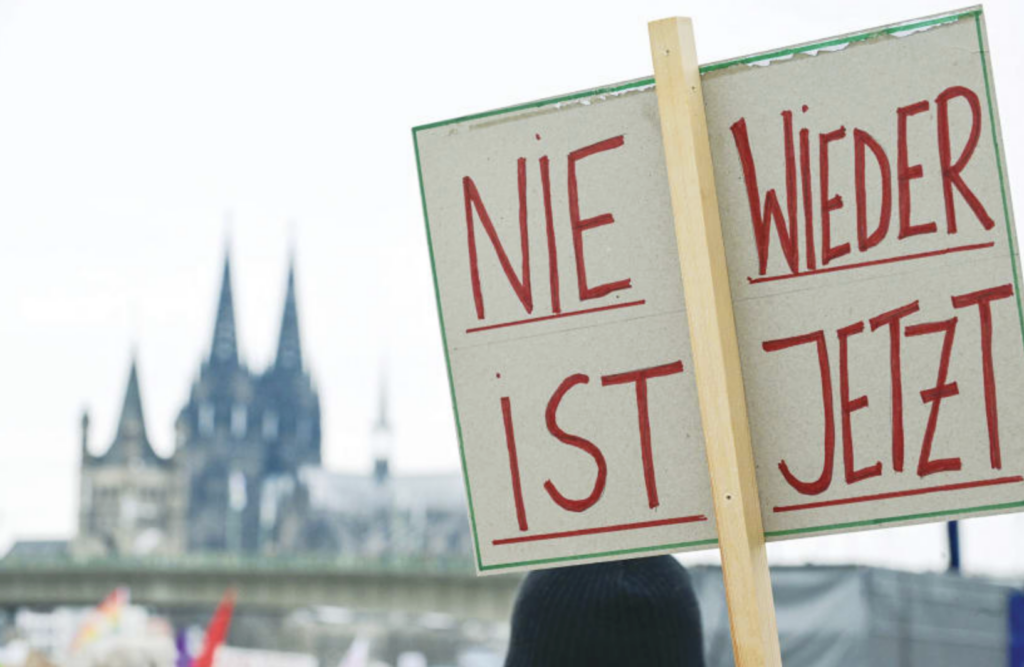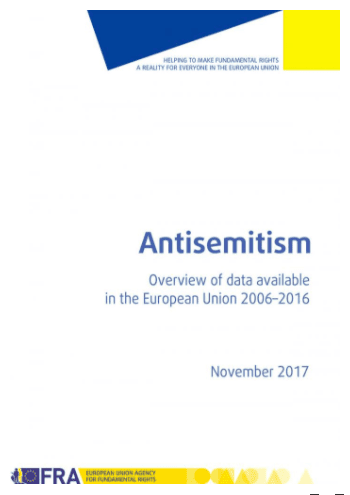Never again? If European governments are not prepared or are unwilling to turn words into action, these important words will have just been a platitude. And an insulting one at that.
What exactly do they mean? No more concentration camps? No more mass murder? One would certainly hope so, given Europe’s turbulent and bloody treatment of the Jewish people.
And what about never allowing the circumstances that led to these barbaric and inhuman manifestations of hate to happen again? Does “Never again” mean that too?
The Jewish communities across Europe certainly thought so. It appears that we were laboring under a misapprehension, brought into vivid and stark relief in the aftermath of October 7.
Antisemitism continues to rise at alarming rates
Since the Hamas pogrom, reported cases of antisemitism have gone through the roof – in the UK, Spain, and France the percentage rise is over 1000%. Today, as I write this, Jews are facing levels of antisemitism last seen in 1939 in Nazi Germany.
This is an unbelievable and incredible sentence to have to write.
Things were already bad. Like a dormant volcano before October 7 , there were regular tremors and some eruptions, but we hoped for the best. The war awoke it. Jewish Communities are daily facing molten streams of hate everywhere across the continent.
In Holland, earlier this year, they canceled Holocaust Remembrance Day events at universities over security concerns and because of vociferous opposition to the memorializing. Just recently, in Amsterdam, there were protests at the opening of a new Holocaust museum.
Rabbis are slapped in the street and verbally abused. In capitals across the continent – mainly in those with significant Muslim populations – there are regular protests displaying Nazi images referring to Jews, images drawing parallels between Gaza and Auschwitz, and you can hear calls for Jewish genocide and ethnic cleansing “From the river to the sea.” You can read placards calling Jews terrorists, and the blood libel of “child killers” is regularly used.
Death threats against rabbis are common. Jews are insulted on the street on a daily basis and our children cursed at.
Those European citizens who have served in the IDF are outed in their communities through letter campaigns pointing out that a “child killer” is living next to them; flights arriving from Israel are tracked and met by protesters.
The Jewish community president in Porto takes his child to nursery wearing a bulletproof vest. The principal Jewish organizations here in Belgium have had to write to their prime minister, urging him not to abandon them.
A Brussels commune, in which NATO HQ is located, just this week raised the Palestinian flag above their town hall.
To paraphrase Nietzsche, as Israel stared into the abyss, Jews in Europe have seen the abyss staring back at them in their neighborhoods in London, Paris, Madrid, and Brussels. Just because they are Jews.
At least Israel can fight back. What can we do? We place our lives and our trust in the hands of our respective governments. Are we right to do so? Let’s take a minute to look at the evidence.
Back in 2021, amidst a spike in COVID-related antisemitism, the EU published a detailed strategy for combating antisemitism. The strategy was handed over to the member states, and they in turn were to adopt measures and develop national plans for combating antisemitism. Many did. A great many also signed up to the IHRA definition of antisemitism, patting themselves on the back.
But any strategy must ultimately pass the test in the real world. So how have these strategies, plans, and IHRA adoption held up upon meeting the post-October 7 landscape from what you have read so far?
That’s right. They have no visible or demonstrable practical application across Europe today. Or to put it as eloquently and simply as a Dutch Jewish community president put it: “They are not worth the paper they are printed on.”
The reality is that police departments are hamstrung at openly antisemitic protests, unsure and therefore unable to stop public manifestations of hate and overt antisemitism.
A swastika is allowed because it is “context-dependent”; “From the river to the sea” is allowed in some capitals, because it isn’t explicit enough to count as hate speech. (Would they just prefer “Burn, Jew, burn”?).
The courts too, seem to have little to no frameworks available to prosecute the anti-Zionists and antisemites who are making our collective Jewish life here in Europe hell.
And these Jew-haters are emboldened because they can act with total impunity. They simply moved the goalposts and – when they can be bothered – have just replaced Jew with Zionist, thereby rendering the vast majority of Jews in Europe as the Azazel for their hate. It must be such a relief for them to finally give air to their sulphurous pent-up poison.
As I write this, an image from a community in Dortmund has just popped up on WhatsApp. It shows a large graffiti of a Star of David with a swastika inside it.
Never again? If European governments are not prepared or are unwilling to turn words into action, these important words will have just been a platitude. And an insulting one at that.
The writer is chairman of the European Jewish Association, which represents hundreds of Jewish communities across the continent.
https://www.jpost.com/opinion/article-796594
















